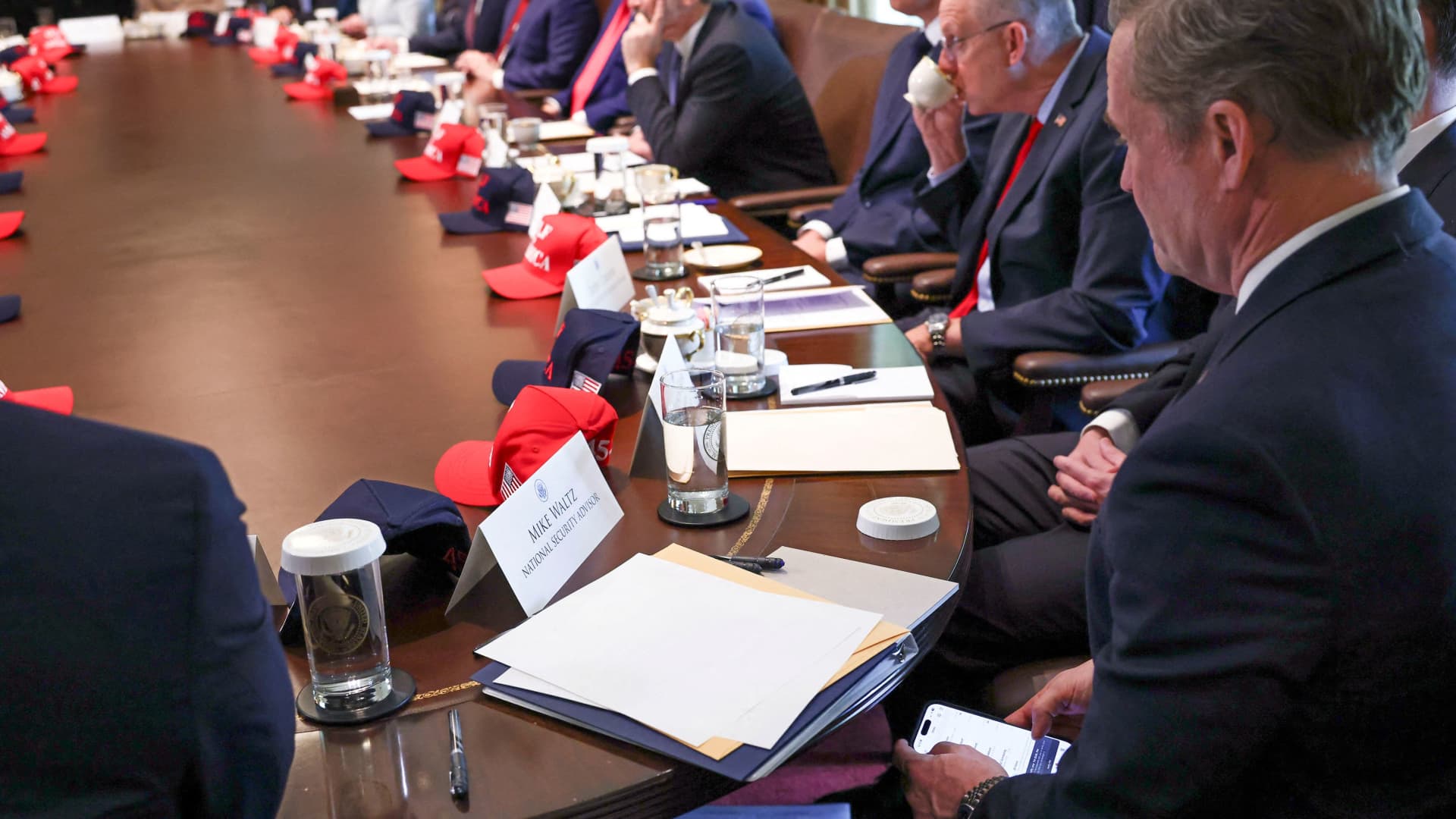The Signal Scandal: A Crisis of Trust in Digital Governance
Introduction
In an era where digital communication shapes political discourse, the revelation that Trump administration officials used Signal—despite the president’s public disapproval—ignited a firestorm. Dubbed “Signalgate,” this scandal exposed deeper fissures in government transparency, legal accountability, and national security protocols. What began as a seemingly minor breach of protocol spiraled into a defining controversy, raising questions about the ethical and operational frameworks governing modern leadership.
—
The Spark: How Signalgate Unfolded
The scandal erupted when reports surfaced that former White House national security advisor Mike Waltz and others were actively using Signal for official communications. Screenshots of conversations involving figures like JD Vance and Marco Rubio contradicted President Trump’s stance on the app, creating an immediate credibility crisis.
Key Details:
– Signal’s end-to-end encryption allowed messages to vanish, circumventing federal record-keeping laws.
– The administration’s mixed messaging—publicly denouncing Signal while privately relying on it—fueled accusations of hypocrisy.
This wasn’t just about protocol; it was a clash between the convenience of private messaging and the imperative of governmental transparency.
—
Legal and Ethical Quagmires
1. Violations of Transparency Laws
Federal mandates require preserving official communications, but Signal’s disappearing messages undermined this. Former officials like John Bolton condemned the practice, warning it created a “shadow government” unaccountable to historians or oversight bodies.
2. Defying Judicial Orders
The scandal worsened when officials allegedly deported immigrants despite a court order to retain them—a move critics labeled as obstruction of justice. This blatant disregard for legal processes amplified scrutiny of the administration’s respect for institutional checks.
3. Veterans’ Outcry
Post-9/11 veterans, via groups like IAVA, demanded accountability, with over 80% calling for consequences in polls. Their anger stemmed from fears that classified information could leak through unsecured channels, jeopardizing national security.
—
The Administration’s Damage Control
Facing backlash, the White House downplayed Signal’s use, calling it “limited.” Yet, the fallout was irreversible:
– Staff Shakeup: Several officials linked to the scandal resigned or were reassigned.
– Public Trust Erosion: The discrepancy between public statements and private actions deepened skepticism about the administration’s integrity.
Signal’s developers, meanwhile, reiterated their commitment to privacy, distancing the app from political misuse. But the damage was done—the scandal spotlighted how technology could be weaponized to evade oversight.
—
National Security in the Balance
Signal’s encryption, while protecting user privacy, posed unique risks for government use:
– Opacity: The inability to audit communications raised red flags about potential leaks or unchecked decision-making.
– Precedent: Allowing such tools normalized practices that could hide malfeasance or bypass accountability mechanisms.
Experts warned that without clear policies, future administrations might replicate these tactics, further eroding institutional norms.
—
Reforming Government Communications
Signalgate underscored the need for modernization:
The scandal revealed a systemic failure to adapt Cold War-era record-keeping to the digital age—a gap that must close to restore public confidence.
—
Conclusion: A Watershed Moment for Accountability
Signalgate wasn’t merely a political blunder; it was a stress test for democracy in the digital era. The public’s demand for accountability—especially from veterans and legal experts—sent a clear message: opacity has no place in governance.
As technology evolves, so must the frameworks ensuring that power is exercised openly. The lessons from Signalgate are stark: without vigilance, encryption tools meant to protect can instead become instruments of obfuscation. The path forward hinges on marrying security with transparency, ensuring that trust, once broken, can be rebuilt.











